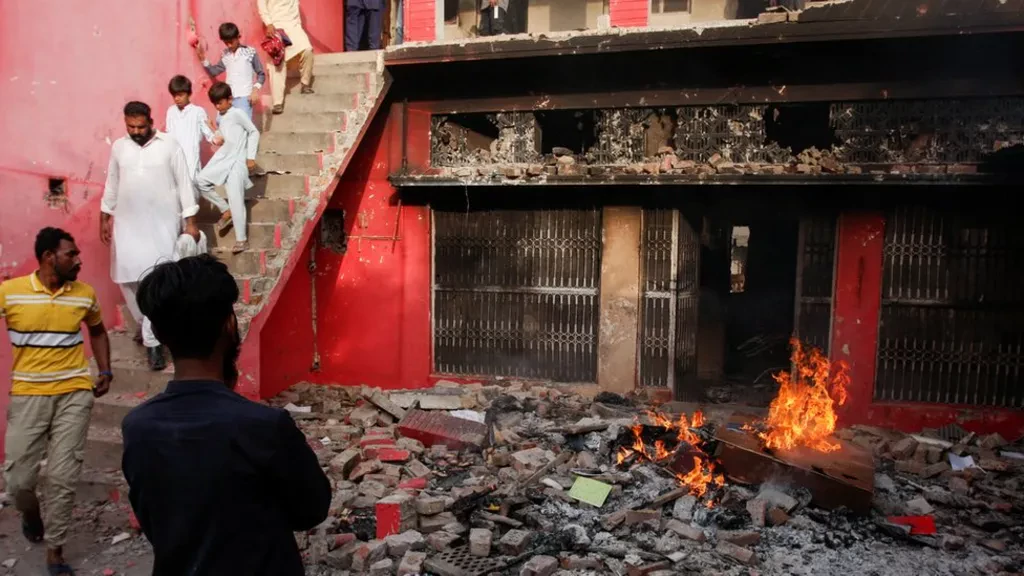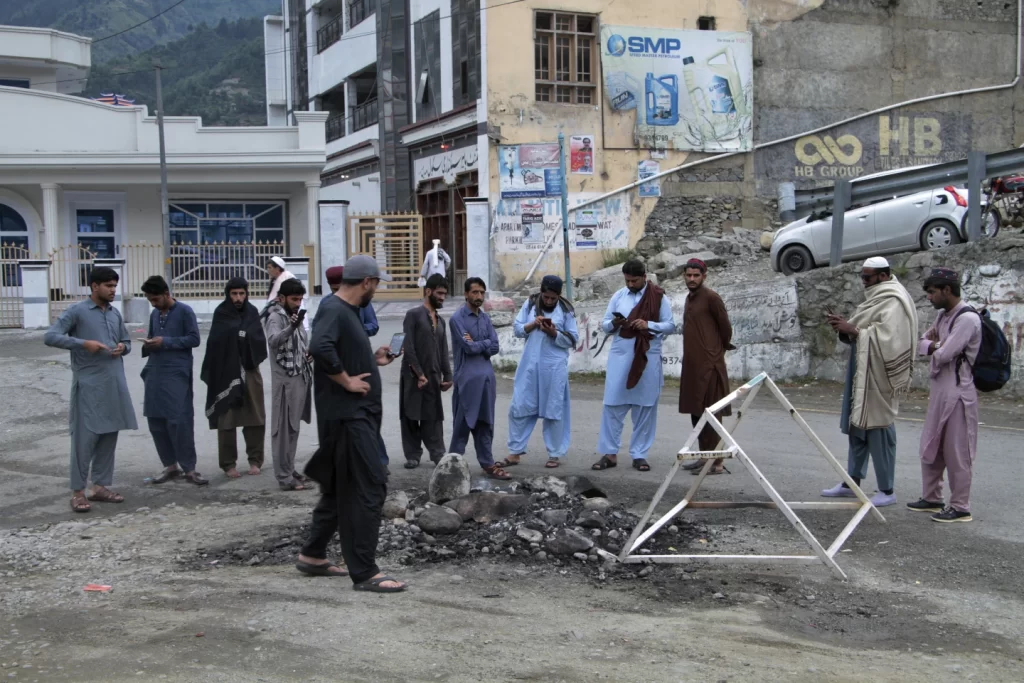In a disturbing incident highlighting the volatile nature of blasphemy accusations in Pakistan, a Muslim mob in the northwestern town of Madyan, Khyber Pakhtunkhwa province, stormed a police station on Thursday, lynching a man accused of desecrating the Quran. The attack underscores the persistent tensions surrounding religious sensitivities in the country.

The victim, identified as Mohammad Ismail, was a tourist staying at a local hotel when he became the target of blasphemy allegations from some residents. Local police official Rahim Ullah reported that officers had taken Ismail into custody at the police station for his protection. However, the growing mob pursued them, eventually breaking into the station.
In a horrifying turn of events, the attackers overwhelmed the police, seized Ismail, and beat him to death. The mob’s fury didn’t stop there; they proceeded to burn Ismail’s body and left it on the road. The police station itself was not spared, with the mob setting it ablaze along with several police vehicles.

Authorities have dispatched additional police forces to Madyan in an attempt to regain control of the situation. As of now, it remains unclear whether any arrests have been made in connection with the attack.
This incident is part of a troubling pattern of violence associated with blasphemy accusations in Pakistan. The country’s strict blasphemy laws, which can carry the death penalty, have been criticized by international and national rights groups. These organizations argue that such laws are often misused to persecute religious minorities or settle personal vendettas.

The Madyan lynching follows a similar incident last month in Punjab province, where a 72-year-old Christian man, Nazir Masih, died in hospital after being attacked by a mob over allegations of desecrating the Quran.
These recurring incidents of mob violence highlight the urgent need for reform and better enforcement of the rule of law in Pakistan. They also raise serious concerns about the protection of individuals accused of blasphemy and the broader issues of religious tolerance and freedom of expression in the country.
As Pakistan grapples with these challenges, the international community continues to call for measures to prevent such extrajudicial violence and ensure the fair treatment of all citizens, regardless of their religious beliefs.



